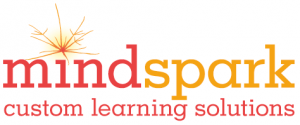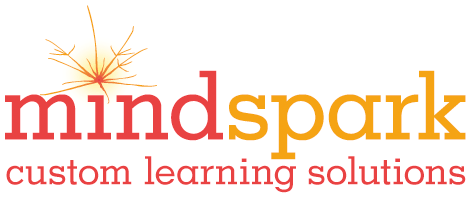Presentation details
All presentations can be adjusted from 45 five minutes, to an hour and a half, to half-day or full day workshops. Presentations can also be adjusted for audiences of parents, teachers, educational therapists or any combination.
What’s math got to do with it? Math learning disabilities, dyslexia and ADHD: Understanding the connections, remediating effectively
April 2019, NCTM National Conference
February 2019, LDA 56th Annual International Conference
November 2018, NCTM Regional Conference, Seattle
November 2018, Annual International Conference on ADHD
July 2018, Conference for the Advancement of Mathematics Teaching
April 25, 2018, The Carey School, Staff Development
April 4, 2018, Webinar, So Cal Tri-Counties Branch of the International Dyslexia Association
October 21, 2017, Association of Educational Therapists National Conference
October 20, 2017, National Council for Teachers of Mathematics, Orlando Regional Conference
October 5, 2017, Holy Names University
September 22, 2017, Association of Educational Therapists Marin Study Group/Marin Educators in Private Practice
June 1-2, 2017, Midwest Academy
May 20, 2017, Association of Educational Therapists San Francisco Study Group
February 18, 2017, Learning Disabilities Association of America 54th Annual International Conference
April 16, 2016, Parent Education Network’s EdRev
When we hear dyslexia, we think reading and writing, but 80% of people with Specific language impairment and 31% of people with ADHD struggle with math. Yet, many students miss out on high-quality mathematics remediation because the attention of schools and parents is so frequently focused on reading and writing. Join Board certified educational therapist Diana Kennedy to learn the symptoms and causes of Math Learning Disabilities and their relationships with dyslexia and ADHD, what those difficulties look like, and the best way to address them. Walk away with ideas for games, lessons, and approaches to help your students excel in math.
The who, what, when and why of reading instruction
May 9, 2016, So Cal Tri-Counties Branch of the International Dyslexia Association
April 9, 2016, Association of Educational Therapists East Bay
April 25, 2015, Association of Educational Therapists San Francisco Study Group
September 23, 2014, Learning Ally Webinar
September 20, 2013, Association of Educational Therapists Marin Study Group/Marin Educators in Private Practice
If you’ve heard about Orton Gillingham or Lindamood Bell or Wilson or Slingerland or Language! or Read Naturally…and ever wondered with whom you should use each and why, this presentation is for you. Diana shares insights into the areas of reading that can break down for children. She also covers warning signs and red flags to look for, assessments that reveal what is happening with a given child, and the major reading programs that address each type of breakdown. Attendees will be able to more accurately assess their students and craft an intervention specific to their individual needs.
Homework help that really helps
November 4, 2016, Parents Education Network
March 11, 2013, California Association of Independent Schools, Northern California Regional Meeting
September 25, 2012, Flexible Learning Opportunities/Every Kind of Mind
Of course parents want what is best for their child. Nowadays, this means spending a good amount of time overseeing, managing and helping with homework. But where is the line between being helpful and doing too much? In parent-friendly terms, Diana explores controlling the subtext: what messages is help sending; teacher versus parent: effective roles to play; content, skills, processes: goals of homework; games: a no-tears approach to helping with some common issues; when to step aside: indications that a child may need more or different help. In this presentation, Diana discusses what homework help really helps and what may be hurting a child.
Crying kids can’t learn to spell: How to attend to the socio-emotional needs of your students and still teach everything else
January 2019, Council for Exceptional Children National Conference
October 2016, AET 38th Annual Conference
March 5, 2016, So-Cal Tri-Counties Branch of the International Dyslexia Association
May 1, 2015, Nakornpayap International School, Thailand
March 2, 2015, Association of Educational Therapists, Virtual Study Group
October 26, 2014, Association of Educational Therapists National Conference
Phonics. Phonemic awareness. Comprehension strategies. Teachers, in the classroom or in an office, know what they need to teach to help their children succeed in school. But, research tells us, students need to be ready to learn. Stress decreases the receptiveness of brains to learning. How does a busy teacher fit in support of a student’s emotional life and still meet all the academic demands? This presentation will present the science behind attachment teaching and the power gained from attending to the socio-emotional needs of students. Most importantly, it will provide practical lessons to integrate socio-emotional attunement with reading and writing goals.
Strategies to get reluctant writers writing (and comprehending better, too!)
January 2018, So-Cal Tri-Counties IDA Webinar
April 19, 2016, Association of Educational Therapists Webinar
September 19, 2014, Association of Educational Therapists Marin Study group/Marin Educators in Private Practice
Have you faced a child who hates to write? Maybe she fits a pattern typical of dyslexia, but maybe not. Some students read fine, spell well and get grammar, but blanch when you ask them to write. For some kids, nothing is scarier than an open-ended writing assignment. Still others write the bare necessity but do anything to avoid filling in details. In this presentation,Diana will explore different profiles of reluctant readers and offer hands-on, easy-to-implement, fun ways to get those reluctant writers writing.
Strategies to get reluctant writers writing (and comprehending better, too!) from the Association of Educational Therapists
Adventures in neurodiversity: Framing, remediating and responding to learning disabilities
May 20, 2015, Association of Educational Therapists Webinar
February 18, 2015, Learning Disabilities Association of America 52nd Annual International Conference
In this presentation, Diana presents a framework and teaching approach informed by neurodiversity. It serves as a bridge between general and special education teachers for work with students with learning disabilities, ADHD and ASD. Teachers will be able to assess their practices and adjust them to help all students achieve their potential.
Adventures in Neurodiversity: Teach and Think like an Educational Therapist from the Association of Educational Therapists
Two pathways to weak reading comprehension: What’s going on, why, and how do we help?
Some students struggle with the very act of decoding, using up so much processing power that they can barely attend to the task of making meaning when they read. Others decode fine, maybe even above grade level, but they still have trouble making meaning of what they read. This presentation explores the patterns of strengths and weaknesses in each type of student, explains the neurobiology underlying each one, and offers remediation techniques, lessons and games to address them.
Play-full approaches to ADHD
February 2019, LDA 56th Annual International Conference
Jean Piaget famously said, “Play is the work of childhood.” All children are wired to learn through play, but for those with ADHD, play offers a particularly powerful way to address their neurological challenges, process their complex experiences and explore and accept their unique identities. BCET Diana Black Kennedy and MFT Holly Seerely will share techniques to integrate play into the academic, social and emotional work our students must do to learn, grow and heal.
Such a great webinar. Diana was amazing and took a complicated topic and made it so easily understandable. Kudos to all who worked on getting this presented!
A fantastic presentation! Well put together with research and hands on activities, books and games that can be used immediately. I also appreciated the differentiation for one on one sessions or whole classroom instruction. Thanks!
It’s an excellent resource for parents, especially immediately after a diagnosis and when developing and monitoring an IEP. Thank you Diana Kennedy and Learning Ally for a very informative webinar!
She was very funny and engaging. I liked her examples of how to handle different situations that may come up in my practice.
I listened to your Learning Ally Webinar this past weekend. It was literally one of the best videos on Dyslexia I have seen in 10 years!
This was absolutely amazing — the scope of information which you covered, the depth, the research, and the variety of interventions, etc., which you presented! Thank you so much!
Thanks again for doing a superb job on this webinar – it was wonderful!
Thank you so much for your presentation via web this morning! I got sooooo much out of it….you have an amazing wealth of knowledge. Your ability to organize the information and connect one thing to another is so helpful and effective.
Truly fantastic! Inspiring and informative! Great stories!
Diana, great presentation. Specific, practical, to the point and well timed.
Thank you, it was a wonderful webinar and I am recommending it to all my Special Educational Needs teachers.
Diana, congratulations on a brilliant webinar!! You did a fabulous job.
I attended your talk on math learning disabilities at the NCTM conference last week. I’m so grateful for the information you presented. What I learned in your session will definitely change my practice.
I just finished listening to your awesome workshop. It was fantastic…You have a wonderful knowledge base and you express yourself so very well.
Thanks a ton for this amazing and informative free webinar. Just wanted to share that my 6yr old loved your saber tooth example.
This presentation was superb. Interesting information well expressed. Thanks.
It was an engaging and fun presentation and discussion-and informative-with good take aways that parents can immediately start using. Leaving a presentation with concrete things TO DO (not just a discussion about what’s difficult and why) is key! It was great! Thank you very much Diana.
Thanks so much for speaking today! You were very engaging and funny, which always helps keep people interested. The handouts were great to have, as people like something tangible, and the topic that you addressed today is really on point with many issues our parents are struggling with on a regular basis.
Her presentations are apt. It’s like she has read volumes and summarized it for us nicely.
The Webinar… presentation was excellent! Her ideas, tips, and information were practical, fun, and motivational. I look forward to getting her handouts and to using her activities.
Great descriptions of difficulties students have and excellent activities to use. Diana had a great fund of knowledge and is able to explain it well.
Outstanding both in presentation and content.
Very helpful strategies for each difficulty.

